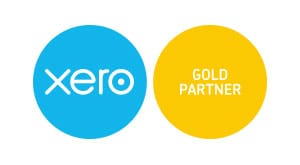The Coronavirus Job Retention Scheme extended for employees on statutory maternity and paternity leave
The Government have announced that any employee currently on statutory maternity or paternity leave who are due to return to work in the coming months are able to be placed on furlough for the first time even after the 10th June cut-off date. The extension also includes any employee on adoption leave, shared parental leave and parental bereavement leave. However, this extension will only be available to employers if they have previously furloughed other employees before 10th June 2020. As a reminder, any other employee not previously furloughed, is unable to be included on any claim if they have not been placed on furlough by the 10th June.
Reverse VAT charge for the construction industry postponed to 2021
The government has announced a further five-month delay to the introduction of the domestic reverse VAT charge for construction services due to the impact of coronavirus.
The domestic reverse charge for building and construction services was originally planned to come into force on 1st October 2019, but this was delayed for 12 months in response to industry concerns that some businesses were not ready to implement the changes required.
It has recently been announced that to help businesses overcome the effects that the coronavirus pandemic has had on them and give them more time to prepare, the introduction of the reverse charge has now been delayed for a period of 5 months until 1st March 2021.
A reverse-charge system requires a VAT-registered customer to account for the VAT due when buying certain services from its suppliers. The customer pays the VAT due to HMRC by making an adjustment to its VAT return rather than paying the VAT to the supplier.
The advantage of a reverse charge is that there is no risk of a fraudulent supplier invoicing for work that it has purportedly supplied together with VAT, which it then fails to account for to HMRC.
The introduction of the reverse-charge system necessitates changes to agreements between customers and suppliers, updates to accounting systems (including invoicing procedures) and will impact on the business’ cashflow. Given that many construction projects came to a halt as a result of the coronavirus pandemic, introducing the changes from October would have come at a difficult time.
Firms that missed VAT deferral may be able to claim refund
HMRC has confirmed that where taxpayers wanted to defer VAT payments due between 20 March 2020 and 30 June 2020, but did not manage to cancel their Direct Debit in time they can claim a refund.
The quickest way for taxpayers to do so, according to HMRC, is to submit a Direct Debit Indemnity Claim to their bank, ensuring that they state they want to claim a refund under the Direct Debit Indemnity Scheme (DDI). HMRC confirms that there is no time limit in making this request.
If the taxpayer wants a repayment from HMRC rather than contacting the bank, they must ensure that their bank details are updated using the online services.
HMRC has also issued a reminder that due to COVID-19 restrictions, Payable Orders are not being issued and that it may take up to 21 days for the refund to be received if the Direct Debit Indemnity Claim process is not used.








 Production
Production
